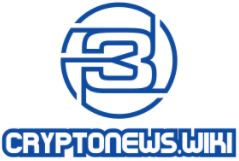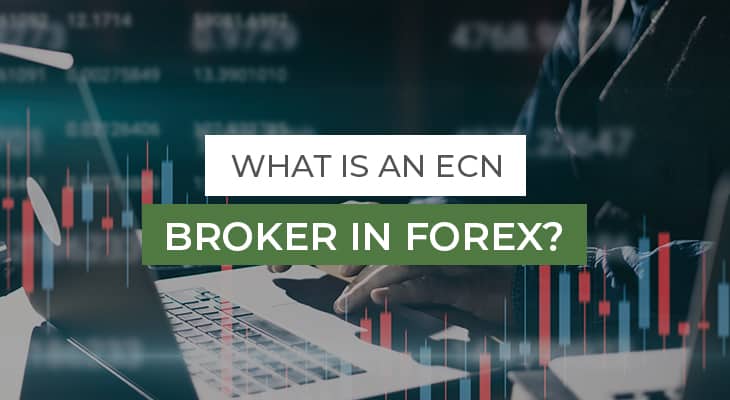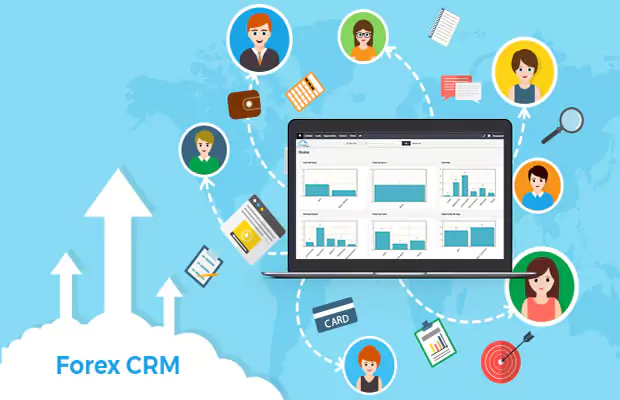Content
As long as a pair of operators have a roaming agreement, every time a subscriber triggers an event in a visiting network, a smart contract and the terms of agreement are executed, enabling almost instantaneous charging. There would also be inherent cost savings by the elimination a of third party roaming clearing house. Mobile telecoms operators may see the greatest impact of blockchain in their core management systems and in adjacent services. Over the past two decades, disruptive technologies such as those by Over The Top suppliers have been introduced, and some telecoms operators have seen decreasing revenues and increasing operating costs as a result. There is also continual transformation in the industry as it moves towards the wide adoption of 5G and IoT. Customers can earn tokens to seamlessly redeem their rewards at one of the retail partners on the blockchain network.
Fraudsters have found a way to use digital payment systems such as Bitcoin more than once, but Blockchain can prevent another attempt at spending using the same cryptocurrency taking place. Ninety percent of North American and European banks are currently exploring Blockchain’s potential to combat fraud. Click To TweetNinety percent of North American and European banks are currently exploring Blockchain’s potential to combat fraud. As a digital ledger of transactions that can’t be corrupted the finance world is realising its potential to reduce fraud. Blockchain enables smart contracts to be introduced that can store rules for negotiating contract terms, automatically verify contracts, and execute the terms.

In this event, techUK will bring the cyber and financial services communities together to revisit the continuing themes in cyber fraud prevention and look at financial service providers’ approach to tackling these. We’ll also take a closer look at new rising trends, including threats arising from emerging technology, and key recommendations for tackling cyber fraud. “As a non-banking factoring company in India, we need to stay ahead of the competition and provide a seamless, yet secure lending experience to our MSME customers.
Designing Geographically Distributed Environments With The Google Cloud Platform
“There is no silver bullet for FIs when it comes to preventing financial crime,” asserts Federica Taccogna, senior managing director of financial services at FTI Consulting. “In fact, is it even possible for one institution, standing alone, to prevent financial crime from occurring?
Investment and fund managers could also see significant benefits by utilising blockchain technology. The standard settlement time for many investment vehicles is two days, meaning that transactions may complete at a different rate than envisaged and funds are unavailable to any party while the transaction is being cleared. However, transactions can complete on a blockchain in near-real time, which results in an increased liquidity of assets with which a manager can transact. With perpetually moving markets, the ability to immediately reinvest liquid funds could be key to achieving higher returns for investors.
Returners Hub The techUK returners hub is a one-stop-shop for people looking to return to a career in digital. Blockchain techUK considers actions taken to industrialise, support technology readiness, help organisations with adoption and consider use cases across sectors. Cloud computing techUK’s work focuses on ensuring the UK stays at the forefront of cloud adoption. Emerging technologies techUK is dedicated to exploring key transformative technologies driving the UK’s digital economy, society and industry through tech and innovation campaigns.
Fraud Prevention
Health and social care With health and care systems around the globe facing increasing pressures, the use of digital technology has never been more important. Defence and security The Defence programme works to help the UK’s Defence technology sector align itself with the MOD. Data centres Data centres provide the core infrastructure that underpins all digital activity across government, business and community. Cyber security techUK brings together key players across the cyber sector to promote leading-edge UK capabilities, build networks and grow the sector. 5G communications 5G is the digital fabric of the Fourth Industrial Revolution, enabling the delivery of new and exciting services into areas such as utilities, mobility and healthcare. Digital ethics In an increasingly digital world, it’s important that technology is used to improve and enhance the quality of people’s everyday lives. Data protection techUK believes that we need a robust and workable data compliance environment in the UK to deliver outcomes that ensure consumer trust.
- Every block of the chain contains the hash of the previous block, and the ‘append-only’ nature of the database means it is impossible to modify any of the data on a block without changing the entire chain.
- It is inevitable that Distributed Ledger Technology will play an increasingly significant role in global industry, but the financial services sector in particular is likely to see a paradigm shift in the coming years.
- COVID-19 has driven a significant evolution in customers moving to online transactions.
- The reality, unfortunately, is that it typically takes failures for FIs to collectively learn about a typology.
- Blockchain has the potential to reduce industry losses due to roaming fraud, and to minimise costs for fraud detection applications.
- If the data were recorded to a public ledger, the transactions would be publicly visible to participants and any fraud would quickly be detected.
However, before leveraging any new technologies, Mr Pine believes it is important for FIs to conduct initial and ongoing model validations for all technology platforms they utilise to combat financial crime. In addition, they should conduct ongoing rule tuning and optimisation of their financial crime monitoring models to tailor the model output to their own unique risk profile. The likes of artificial intelligence and machine learning can be used to interrogate huge amounts of transactional data, to identify anomalies, patterns and networks that would otherwise be impossible to find. Of course, what makes FIs such attractive targets for fraudsters is the significant amount of sensitive data they hold about clients, staff and the environment in which they operate.
Oracle Blockchain Platform Cloud Service Customer Successes
/PRNewswire/ –Finastratoday announced the availability of NetGuardians’ Payment Fraud Prevention app on its FusionFabric.cloudopen development platform. The app uses artificial intelligence to proactively detect fraudulent payments in real-time and reduce fraud losses. Invoice financing and transaction company Crowdz, has today announced it will introduce fraud-detection application Invoice Check, by Trade Finance Market as part of its SuRF Score product. Crowdz is working to create the market’s most accurate risk assessment technology for investors. The promise of blockchain is a brave new world where cryptography replaces trust, allowing fast, truly peer-to-peer transactions with protection supplied automatically by software. Blockchain provides the means to build asset registers capable of recording the ownership of, transactions involving, and key information about anything of value – from a vote to a hire car, from a house to a diamond. But what’s really special about a blockchain is that it’s nearly impossible for fraudsters to change the information in it.
It makes transactions simpler and quicker and is probably deserving of the praise being heaped on it. It places an emphasis on both transparency and security – issues which will always go some way to preventing, or at the very least identifying, financial crime.
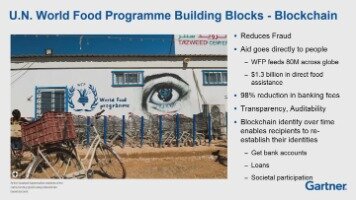
With financial transactions being securely and transparently recorded to an immutable ledger with a robust verification process, asset-tracing has the potential to be much more straight-forward than is presently the case. Applying the technological capabilities to real-world cases assists in providing insight as to how fraud could be prevented and asset tracing simplified. Unlike traditional financial ledgers and transactional processes, there is no requirement for a central trust authority to verify information such as the existence and ownership of assets. Instead, each transaction is verified by a majority of unrelated participants (called nodes – sometimes referred to as ‘miners’).
Although concerns have been raised that an immutable ledger is contrary to the right to be forgotten, or the right to rectification of data. Proponents believe such systems will eventually go mainstream, having a big impact on firms and consumers around the world who currently lose billions of dollars to fraudsters each year. Under the existing system, issuing, verifying and tracking LoCs is a largely paper-based, cumbersome and costly process that has seen little meaningful change for at least a century. Each party in a transaction, and there could be many, also has to keep and verify their own separate paper records which, among other things, can give rise to fraud. Proponents say it creates an irrefutable digital paper trail that is more transparent and cuts out room for manipulation.
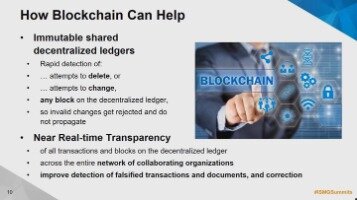
It is a peer-to-peer network whereby data is distributed amongst equally privileged nodes, each with its own copy of the ledger and predefined rules to facilitate a consensus and ensure the authenticity of the data. While private systems might work in limited and controlled situations, scaling them so they have the global reach of fully decentralised public blockchains, best known for their association with digital currencies, will be much harder. But banks and payments firms are less interested in digital coins than they are in the technology that underpins them, which they believe could be harnessed in a host of different ways. Numerous big firms are testing blockchain-inspired systems that promise to make digital transactions more secure and efficient, while a handful, such as Visa and HSBC, have launched their own commercial platforms. As the problem of payment fraud intensifies, the world of finance is increasingly looking to emerging blockchain payment processing systems for a solution. According to the 2017 Identity Fraud Study by Javelin Strategy & Research, identity theft and fraud is costing consumers $16 billion a year and 15.4 million people were victims.
Services
However, there are companies that now specialise in solving this on the exchange side, such as Chainalysis. For anyone that then converts into Fiat currency using a company like Contis, there are additional layers of security such as, KYC, PEPS, Sanctions, reduced limits and real time fraud systems, such as ARIC – run by Featurespace. techUK is the trade association which brings together people, companies and organisations to realise the positive outcomes of what digital technology can achieve.
The best-known cryptocurrency is Bitcoin, which was launched in 2009 and has made headlines for how volatile it has been, with people both making and losing millions as the value changes. Some specifically trying to solve this volatility, for example Dai Coin which runs on Ethereum, a stable coin pegged to the value of another asset or group of assets (such as € or $). Local public services Local public services are faced with a range of challenges and digital presents the opportunity to do things differently and smarter. MonetaGo’s solution has been implemented by all three RBI regulated TReDS exchanges of India since March 2018. The company is expanding its fraud detection eco-system rapidly in India for onboarding banks, significantly important NBFCs and Fintech players in the Indian market. MonetaGo is now expanding in other geographies in the Asia-Pacific, European, Latin American and Middle East.
Company directors owe duties to the company they serve and the company legislation creates potential personal liability for certain actions such as trading whilst insolvent. If board decisions are recorded on the blockchain (e.g. using Boardroom) then evidencing allegations or defending them will be far easier, as may be evidencing the critical time when the company became insolvent .
He is responsible for managing techUK’s work across the cyber security eco-system, bringing industry together with key stakeholders across the public and private sectors. Dan also provides the industry secretariat for the Cyber Growth Partnership, the industry and Governmnet conduit for supporting growth across the sector. A key focus of his work is to strengthen the public-private partnership across cyber security to support further development of UK cyber security policy. Business services techUK provides a range of services to help grow your business, with access to finance, business knowledge and support. About us techUK brings together people, companies and organisations to realise the positive outcomes that digital technology can achieve.
They demonstrated how blockchain technology can enable the digitization of governance, which became highly relevant in conventional organizations as well during the Covid-19 pandemic. Blockchain-based electronic voting can provide tamper-proof evidence that elections have been conducted and resolutions have been voted on in accordance with the applicable law and the statutes of the organization. To achieve mass adoption, scalability issues and security concerns must be overcome, though. Finally, data security is a particularly prevalent concern for businesses at present, and the use blockchain technology could significantly reduce the risk of a data breach. This is because all data is encrypted and distributed to participants on the blockchain, as opposed to being stored on a single, central database that might fall victim to a cyber-attack. It may have a useful deterrent effect in some business sectors and in some parts of individual businesses. There can be little doubt that blockchain can – and will – reduce the risk of fraud in letters of credit and in other major transactions.
This involves a thorough, ongoing assessment of the potential for fraud being committed by staff, third parties, intermediaries, customers and trading partners – in short, anyone with a connection to the business or knowledge of its workings. Cyber-criminals, therefore, have no obvious target to carry out an attack, as the data is held in all PCs within the Blockchain. All network participants would have to agree to granting access, making it impossible in theory for a third party to hack into it.
